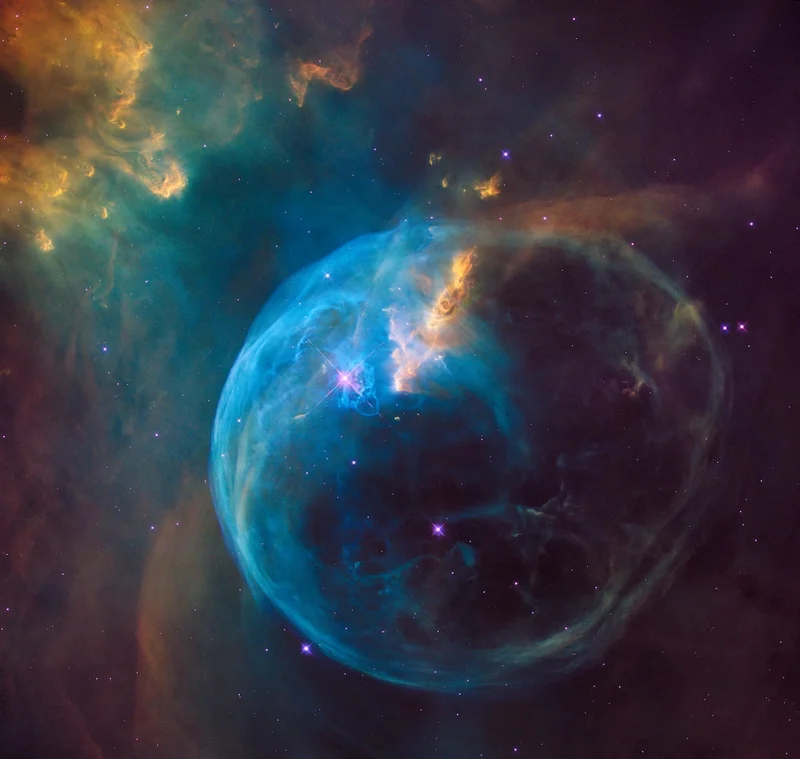The Fight for NASA's Future: What's at Stake and Why It Matters More Than Ever
I saw a headline the other day: Bill Nye slams NASA funding cuts at ‘No Kings’ rally. It got me thinking, as it should. Here we are, a species on the cusp of becoming interplanetary, and we’re squabbling over the budget for the very organization that embodies our grandest aspirations. We’re fighting a loud, public, and passionate battle for the final frontier, for the dream of setting foot on Mars. And I’m right there with him.
But it strikes me that while we’re all looking up at the stars, we’re completely ignoring the new universe being built right under our feet. A universe that is, in many ways, more immediate and influential than any distant planet. I’m talking about the digital world. And its foundational laws aren’t being written by visionary scientists in a public forum; they're being codified in dense, unread documents, documents like the "Cookie Notice" from NBCUniversal.
You’ve seen them a thousand times. That little banner that pops up, a minor digital tollbooth on your way to a video or an article. You hover your mouse, your eyes glazing over words like "Strictly Necessary Cookies" and "Interest-Based Advertising," and you click "Accept All." The banner vanishes. You’ve paid your toll. But what did you just agree to? What invisible architecture did you just grant permission to continue building around you?
The Ghost in the Machine
Let’s be honest. Almost no one reads these notices. But if you do, you quickly realize it’s not just a notice—it’s a schematic. It’s the blueprint for a vast, silent, and incredibly sophisticated information-gathering machine that operates on a global scale.
Think of it like this: As you move through the physical world, you leave behind physical traces—footprints, fingerprints, a stray hair. But in the digital world, the traces you leave are invisible, weightless, and infinitely more detailed. The document calls them "Cookies," "web beacons," "embedded scripts," and "ETags." I call them digital pollen. As you browse, this pollen clings to you, a unique signature of where you’ve been, what you’ve looked at, how long you lingered, and where you’re going next. This isn't just about one website remembering your login. The policy talks about "Third-party Cookies" and "Cross-Device Tracking"—in simpler terms, it means that an entire ecosystem of companies you've never heard of are sharing your pollen profile, building a single, cohesive story about you that follows you from your phone to your laptop to your smart TV.

When I first read through the sheer scope of data collection categories—from "Measurement and Analytics" to "Content Selection" to "Social Media Cookies"—I honestly had to pause. This isn't just tracking; it's the digital equivalent of a full-scale psychological study being run on the entire population, 24/7. This system doesn't just know you like action movies; it knows you're thinking about a vacation to Mexico, that you’re worried about your finances, that you have a passing interest in 18th-century philosophy, and that you tend to browse for news late at night when you can’t sleep. Are we okay with this? Is this silent, ubiquitous surveillance the price of admission for a connected life?
From Digital Pollen to Predictive Engines
This isn’t just about serving you a more relevant ad for a pair of sneakers. That’s the kindergarten version of what’s happening here. The real endgame is far more profound. When you aggregate this digital pollen from billions of people, you create the most powerful predictive engine in human history. The speed and scale of this data collection is just staggering—it means the gap between a fleeting thought and a commercial or political suggestion is closing faster than we can even comprehend.
This is a paradigm shift on the level of the printing press or the telegraph. Those inventions changed how information moved between people. This new architecture changes how information about people themselves is collected, analyzed, and used to influence their behavior. We’re creating a world where our digital environment is constantly, subtly, and automatically re-shaped around a predictive model of who we are. A model we didn't ask to have built.
And this brings me back to Bill Nye and NASA. We rightfully demand public oversight and debate about how we explore outer space. It’s our collective endeavor. But who is overseeing the exploration of our inner space? Who is debating the ethics of building a system that can map the desires, fears, and intentions of a whole society? The architects of this system are brilliant, but they are not accountable to the public. Their work is documented not in scientific papers to be peer-reviewed, but in privacy policies to be clicked past. We are building a new world, and we've outsourced the writing of its constitution to the marketing department.
The Unwritten Contract
The cookie notice isn't the enemy. It's a symptom. It's the one, tiny, legally-mandated window into a colossal hidden apparatus. It’s the wisp of smoke that tells you there’s a city-sized engine humming just beneath the surface of your screen.
The real challenge for us—for this generation of thinkers, builders, and citizens—is not to get better at managing our cookie settings. It’s to demand a new digital contract. One based on transparency, genuine consent, and human-centric design, not on legalese and dark patterns that nudge us toward clicking "Accept." We are so focused on the frontiers of space and science, and that’s a beautiful, necessary part of the human spirit. But we cannot forget the frontier we are building right now, the one we all live in every single day. We have to be the architects of our digital future, not just its passive, pollen-dusted inhabitants.
Tags: nasa
Nvidia CEO's "AI Industrial Revolution" Claim: What He Said About Trump Tariffs and the New AI Economy
Next PostOklo Stock: What the Data Says vs. the Broader Tech Hype
Related Articles
